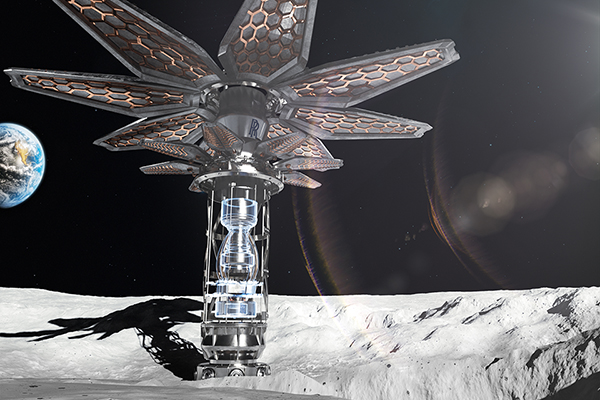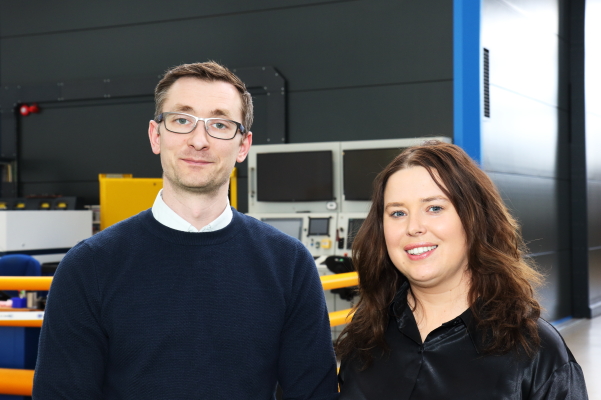The Nuclear AMRC is working with Rolls-Royce and research partners to investigate how nuclear power could be used to support a future Moon base.
The research, funded by the UK Space Agency (UKSA), will develop Rolls-Royce’s proposal for a micro-reactor technology that will provide power needed for humans to live and work on the Moon. All space missions depend on a power source, to support systems for communications, life-support and science experiments. Nuclear power has the potential to dramatically increase the duration of future Lunar missions and their scientific value.
The project is supported by £2.9 million funding from UKSA, and will deliver an initial demonstration of a UK lunar modular nuclear reactor. It follows a £249,000 study funded by UKSA in 2022.
Other research partners include the University of Oxford, University of Bangor, University of Brighton, and the University of Sheffield AMRC. The funding means Rolls-Royce can further strengthen its knowledge of these complex systems, with a focus on three key features of the micro-reactor – the fuel used to generate heat, the method of heat transfer, and technology to convert that heat into electricity.

“The new tranche of funding from the UK Space Agency means so much for the Rolls-Royce micro-reactor programme,” said Abi Clayton, director of future programmes for Rolls-Royce. “We’re proud to work collaboratively with the UK Space Agency and the many UK academic institutions to showcase the best of UK innovation and knowledge in space.
“This funding will bring us further down the road in making the micro-reactor a reality, with the technology bringing immense benefits for both space and Earth. The technology will deliver the capability to support commercial and defence use cases alongside providing a solution to decarbonise industry and provide clean, safe and reliable energy.”
Rolls-Royce plans to have a reactor ready to send to the Moon by 2029. Smaller and lighter than other power systems, a nuclear micro-reactor could enable continuous power regardless of location, available sunlight, and other environmental conditions.
“We are backing technology and capabilities to support ambitious space exploration missions and boost sector growth across the UK,” said Dr Paul Bate, chief executive of the UK Space Agency. “Developing space nuclear power offers a unique chance to support innovative technologies and grow our nuclear, science and space engineering skills base.
“This innovative research by Rolls-Royce could lay the groundwork for powering continuous human presence on the Moon, while enhancing the wider UK space sector, creating jobs and generating further investment.”
- Find out more about Rolls-Royce’s space technology.






